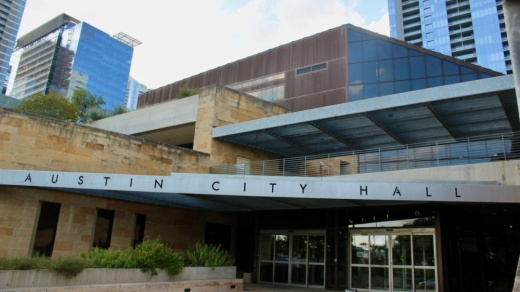In the pandemic's early days last March, Gov. Greg Abbott suspended portions of Texas open meeting laws requiring in-person attendance by public officials and participating residents. With that measure set to expire Sept. 1 at Attorney General Ken Paxton's request, council members spent a portion of their Aug. 31 work session exploring what options the city may have to continue allowing for remote public feedback.
However, such allowances will not be in place in time for council's Sept. 2 regular meeting, and any members of the public wishing to comment this week will be required to visit City Hall to register and share their thoughts. While council sessions have been open to members of the public since council's summer meeting recess, there was no requirement that participants join either virtually or in person.
Comments for any items not related to Sept. 2 zoning cases will be heard at 10 a.m. with in-person speaker registration closing at 9:45 a.m., while zoning cases are set to be heard at 2 p.m. and have a 1:45 p.m. speaker registration deadline. The meeting will also be broadcast via ATXN.
City board and commission meetings are also set to revert back to being held in-person only Sept. 1.
With those adjustments in mind, council spent time Aug. 31 discussing whether the city could feasibly extend several pandemic-related changes to its open meeting policies including public comments via video and advance speaker registration. Several council members expressed a strong desire to allow for similar options to those used through the pandemic, which they said increased accessibility and participation while the public health crisis prevented citizens from showing up to the council chambers.
District 4 Council Member Greg Casar said that opening remote access to council meetings had clearly "increased the diversity of people calling in," and Mayor Pro Tem Natasha Harper-Madison said she believes it is council's "obligation as a municipal body" to ensure easier access to all—especially those at heightened risk related to COVID-19 exposure.
"Everybody should be a part of it. That diversity is what democracy is all about, and I think having folks who otherwise aren’t a part of these conversations weigh in brings a new perspective, and it’s critical that we all participate," she said. "It just seems wrong to ask a person who knows that they have additional concerns to put themselves at risk. And I mean that for our constituents, but I also mean it for us.”
City staff said some guidelines that all Texas governments must now follow involve having a body's chair present in person at meetings and ensuring anyone joining virtually is on camera and visible to all attendees and participants. Several council members asked about the possibility of establishing a public videoconference system for meetings to meet the state requirement, including an advance registration option, which staff said they would review given some performance and security concerns. Some officials also expressed a preference to continue scheduling public comments in timed batches rather than attached to specific agenda items as they are called up by council during its hourslong sessions.
While more accessible public participation may be a preference on the dais, City Clerk Jannette Goodall also cautioned that it would likely consume more staff resources going forward.
Goodall pointed to her work compiling speaker registration information before council meetings over the past year as a "nightmare" typically requiring up to 15 hours of work. She also said the need for two staff members to run in-person meetings pre-pandemic has risen to around five now required for every hybrid meeting, a jump in resources council would have to account for in the future.
City Manager Spencer Cronk said staff, including those in the city technology department, will compile a report for council next week detailing possible next steps on public videoconferencing options and related cost estimates. Staff did not determine whether any potential changes could be rolled out in time for council's late September meetings.
“As far as I can tell, we would be probably the first large city that would be trying to accomplish such a thing, so I would just ask for your patience. Because this is probably going to be a learning experience for all of us as we try to figure out how this is going to work and whether or not it is viable long-term," Goodall said.
The Aug. 31 work session and a Sept. 2 regular meeting will be council's last scheduled gatherings until the final week of September. Council is set to work through 76 items during its Sept. 2 regular meeting, including contract extensions for homelessness service providers, consideration of changes to Austin's Green Building Policy and Urban Design Guidelines, and collaboration with Travis County on emergency rental assistance. Several posted items related to neighborhood planning along East 11th and East 12th streets east of I-35 were also pulled for a brief preview Aug. 31 and will be the subject of public hearings Sept. 2.





